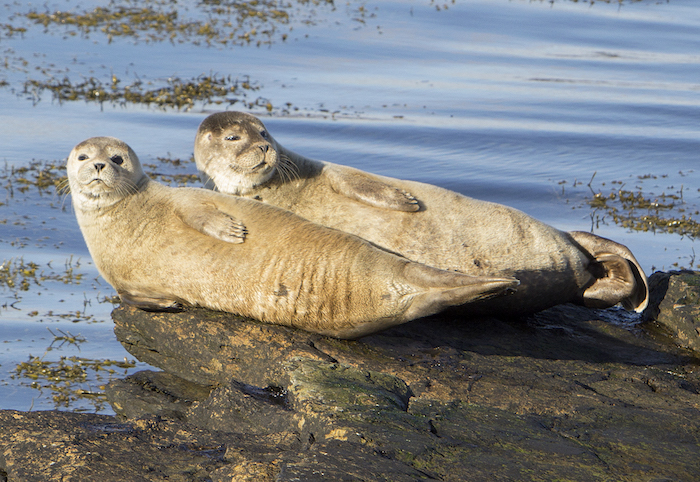Wildlife unaffected by marine renewables claims new report

Marine mammals and seabirds continue to use waters around operational wave and tidal renewable energy devices, claims a new report — the evidence for which was gathered here, in Orkney.
Using data drawn from ten years-worth of wildlife observations, the study has found little evidence of any long-term effects on the use of surrounding seas by the birds and marine mammals living in wave and tidal energy test sites. The study was published yesterday by Scottish Natural Heritage (SNH).
The study looked at the differences in the number and variety of animals in different areas, relative to the levels of site testing activity.
Comparisons were also made between the animals present before any turbines or their support structures were in place and after the turbines were in place and operational.
Since 2005, a wide range of wave and tidal energy converters have been tested at two test facilities run by the European Marine Energy Centre (EMEC) in Orkney.
According to the report, throughout this time, detailed observation records have been kept of the birds and marine mammals present offshore, in and around the test areas.
In 2014, to further improve the understanding of how these new technologies influence marine wildlife, SNH, Marine Scotland and EMEC began their analysis of the vast number of observations collected since 2005.
Analysis of around 10,000 hours of observations at the Fall of Warness tidal test site off Eday did show changes in density and redistribution of some bird species when construction work started. However, the report says that, in nearly all cases, numbers returned to around previous levels once the tidal turbines were installed and operational. Observations of seals, whales and dolphins revealed similar findings.
George Lees, Marine Energy Manager at SNH, said: “The observations used in the study were made from land overlooking the test sites, and so possible wildlife interactions with turbines below the surface are not included in the research.
“Even so, these initial results are reassuring and show that the deployment and testing of multiple wave and tidal energy converters in the seas off Orkney over more than a decade has not had a significant impact on the diverse and abundant wildlife living there.”
Caitlin Long, Consents and Project Officer for EMEC, who conducted the research, explained that the project was set up to help relevant understand the potential changes in wildlife number association with the deployment of marine energy devices.
She said: “The culmination of the extensive wildlife observation programme and this statistical analysis project, should aid regulators, advisory bodies and developers in assessing the potential environmental effects of deploying such devices in our precious marine environment.”

